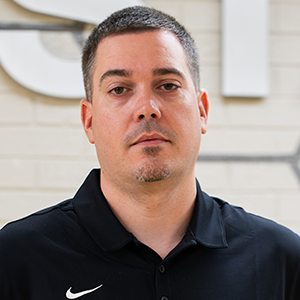
THE ONLINE HOME FOR CO 4713 MULTIMEDIA JOURNALISM
editor in chief / instructor of record : wendy roussin, mfa
Debreasha Powe.“The Importance of DEI for students with Learning Disabilities”
The Beginning.
Imagine being a child and being told things like, “she is just the middle child” or “you are just misbehaving,” when in all reality, that child is actually struggling in school, not because she does not feel like doing the school work, or just isn’t applying herself, but because seven years later, she was finally diagnosed with autistic spectrum disorder and ADHD. This is Lily's story, and yet she is not the only student that deals with these kinds of situations.
Having a learning disability is a real thing, and at times it is overlooked because it does not look a certain way. A learning disability (LD) is a neurological condition that can impact the way a person comprehends, reads, writes, or even how they speak. However, it is not the same for everyone. According to mencap, LD can cause life, in general, to be harder than the norm. This disability can lead to the struggle of everyday life chores or actions. This is why it is important to have someone helping them discover how to navigate through life with these disabilities.
What if I told you there are multiple different types of Learning Disabilities. At times, a lot of people assume that LD looks a certain way when in reality, it does not.There are different kinds of Learning Disabilities such as : Auditory Processing Disorder, Dyscalculia, Dysgraphia, Dyslexia, Language Processing Disorder, Non-Verbal Learning Disabilities, and Visual Perceptual/Visual Motor Deficit. All of these are thoroughly different, yet all still end up affecting the way a person learns. For example, Dyslexia, a well known disability, affects the way some process information and how they read. This is also considered a language based learning disability. Now Dyscalculia is a Learning Disability that specifically affects how a person processes numbers and counting. Both Dyslecia and Dyscalculia, are two different LD’s, but in the end they both are critical to a person's life and can be a major affect in how they go through life.
As children, we all have dreams. Some say they want to be a cop, or a doctor, and others have dreams of going pro, but how can they get there without the help of others teaching them how to succeed with LD? According to research, only about five percent of students with LD actually attend college, and less than that actually receive their degree or certificate. Now, this does not mean that all students with LD cannot go to college. This is why DEI plays an important role in the lives of students.
What is DEI?
Diversity, Equity, and Inclusion, are three words that have made an impact on students' lives, especially students with LD. Because of DEI, schools are supposed to make sure that this is a priority in their facilities, but are they truly doing this? 12th grade Assistant Principal, for Starkville High school, Matt Wilbanks, believes that DEI is very important and Starkville High takes this seriously.
“We have so many different avenues and teachers are now used to having a diverse group of students now. We also train teachers for kids with LD, and I think that this is a very important matter,” says Wilbanks.
Mr. Wilbanks says that in the last few years, Mississippi has done a really good job at pushing for trying to change and differentiating their instruction so that they are able to reach all of their students. Some of the steps Starkville High has made to make sure they are incorporating DEI and giving their students, especially LD students, the best chance at success by, for one, having different learning strategies. All the teachers with “case holder students” take a class that teaches them different learning tricks and ways to better their students. It is vital for them to let the students know that this is a safe and genuine place, where everybody can learn and grow. Not only has Starkville High taken the next step of reaching out to students with LD but so has Mississippi State.
The Program
At the University of Mississippi State, there is a program called the ACCESS Program for students with Disabilities. In 2010, the ACCESS Program was established. It also became the first post-secondary program in Mississippi, allowing students to fully receive the college experience. The program goes for 4 years and the students graduate with a Mississippi State University Certification of Completion with an Area of Focus. The ACCESS program focuses on making sure that students with IDD (Intellectual and Developmental Disability) receive a good education through the skills of independent living, career development, and academics.
The Director of Disability Support Services and ACCESS, Chris Dallager, works with both programs.
Chris Dallager states how much they encourage students with LD to just come and speak with them. He also states that less than half of the students that qualify for learning disabilities going to college actually make themselves known.
Overall DEI is very important when it comes to being an impact on students with Learning Disabilities. It can be very hard for students with LD but with the help of programs like ACCESS and principals like Mr. Wilbanks, who takes the time to help and reach out to them in any way, makes their learning process much easier. Schools all over are getting better with going the extra mile for students. Learning is such a beautiful thing and it is even more empowering when you get to see students who have not had it easy grow and get better. Mississippi State University and local high schools are taking that step, and because of that first step more students with LD get to overcome those obstacles and achieve whatever goals they have for their future!
Email me at dp1670@msstate.edu with any questions!